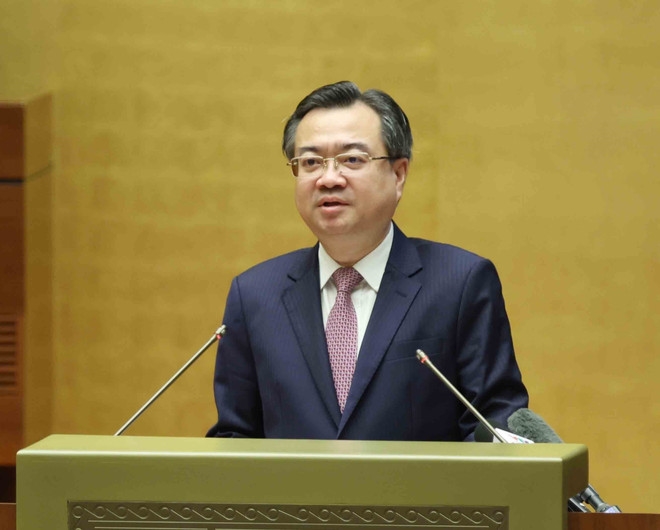The resolution, issued on August 20, 2025, sets a roadmap for ensuring national energy security through 2030, with a long-term vision extending to 2045.
Building on the Politburo’s Resolution No. 55-NQ/TW dated February 11, 2020, the new resolution defines energy security as a core pillar of national security that is directly linked to political stability, economic growth, national defense and global integration, Nghi said.
    |
 |
|
Member of the Party Central Committee and Chairman of its Commission for Policies and Strategies Nguyen Thanh Nghi speaks at the conference. |
The resolution marks a pivot from a narrow focus on securing energy supply to a broader, proactive framework of “firm and self-reliant energy security.” It articulates a multi-dimensional, long-term approach grounded in specific, measurable targets that reflect Vietnam’s real-world constraints and aspirations, designed to ensure timely and effective implementation.
At its core, the resolution champions a diversified energy portfolio, with an emphasis on renewables, liquefied natural gas (LNG), hydrogen, and modern nuclear power. It also calls for intensified research and development, alongside efforts to localize energy technologies to foster domestic value chains.
Energy development must dovetail with socio-economic progress, national defense - security, environmental protection, and Vietnam’s global commitments, including its net-zero emissions pledge by 2050. The plan includes building strategic energy reserves, modernizing transmission infrastructure with smart systems, embedding emission-reduction targets, and adapting to climate change while deepening global integration.
The document updates and concretizes the Party’s key directives on institutional reforms, scientific-technological advancement, innovation and digital transformation, private-sector growth and global integration as they relate to national energy security.
Nghi outlined five guiding principles for 2030, including ensuring adequate energy supply, modernizing the power grid, accelerating renewable energy adoption, securing oil products and LNG, and boosting efficiency while cutting emissions. By 2045, Vietnam aims for a sustainable, smart, and globally competitive energy sector.
Seven key task groups were highlighted, with Nghi stressing the importance of strengthening the Party's leadership, the State's management, and the involvement of the entire political system and the public to safeguard energy security. A second focus is refining policies and mechanisms to create a competitive edge and a robust foundation for energy development.
The remaining tasks center on expanding supply and infrastructure to meet growth demands, enhancing energy efficiency, environmental protection, and climate adaptation while meeting emission-reduction goals; establishing risk management systems, pooling all social resources with strong the private-sector's involvement, driving breakthroughs in science - technology, innovation, digital transformation, and workforce training; and deepening international cooperation to advance sustainable energy and protect national energy security.
According to the official, Resolution No.70 assigns specific duties to municipal and provincial Party Committees, agencies under the Party Central Committee, and its Commission for Information, Education and Mass Mobilization, ensuring a coordinated push to translate this vision into reality.
Source: VNA